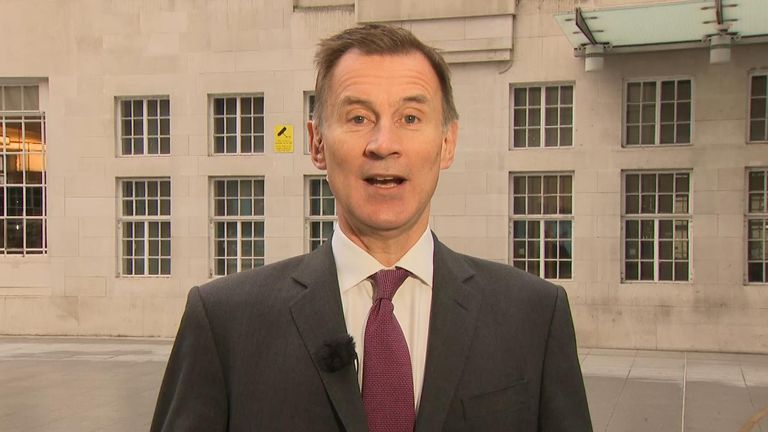
A multi-billion pound plan to expand free childcare risks being undermined by “significant” nursery closures this year, council chiefs have warned.
The Local Government Association (LGA) said it has “serious concerns” about the availability of nursery places, with capacity issues posing challenges to universal rollout of the extended government-funded provision.
Chancellor Jeremy Hunt announced in March this year that free childcare for working parents in England will be widened to infants aged nine months and above by September 2025.
It is currently only available to parents from the start of the next school term after a child turns three.
Mr Hunt said the £4bn policy – a central plank of his Spring Budget – will help with the cost of living crisis and getting parents back to work as the UK has one of the most expensive childcare systems in the world.
But nine in 10 councils fear that further nursery closures this year will undermine capacity to provide the care when the phased rollout of the plan begins to be implemented in September 2024.
The number of childcare providers in England dropped by about 4,000 between March 2021 and March 2022, according to figures from the Office for National Statistics (ONS).
Research by the LGA found 88% of local authorities are concerned that nursery closures in 2023 will also be significant, as the sector grapples with a staffing shortage and funding challenges.
Councillor Louise Gittins, Chair of the LGA’s Children and Young People Board, said: “The government’s extension of free childcare is a positive step towards helping working parents manage the high costs of sending their children to a nursery or childminder.
“We have serious concerns about the ability of local areas to secure nursery places, with capacity issues providing challenges to the universal rollout of the extended offer.
“Nurseries and childcare providers are already under massive pressure, grappling with severe financial and workforce challenges, which has seen staff numbers depleted and an acceleration in places closing.”
In his spring budget, Mr Hunt announced an optional change to childcare staff ratios from 1:4 to 1:5 for two-year-old children.
However, the LGA wants a recruitment drive that improves routes into the sector to be rapidly rolled out, as well as for councils to be given greater powers to commission provision centrally.
A report commissioned by the the organisation has found a lack of appropriate staff is already preventing nurseries from being able to deliver to their full capacity.
It found 40% of councils saw a spike in nurseries closing in 2022, compared to the year before, with insufficient income and workforce challenges driving the shut downs.
Some providers have been forced to shut rooms or close temporarily for days or weeks while others have had to limit places for children with more complex needs.
Read More:
We’re losing £40k a year’: Childcare sector hit by ‘chronic underfunding’
The report found that recruitment and retention challenges were greater in disadvantaged communities.
As well as staffing pressure, the research revealed nursery owners are facing the combined pressures of simultaneously managing hikes in utility bills, rent, insurance, food and staff wages, as well as the growing gap between delivery costs and government-funded entitlement rates.
The report has been released on the second day of the LGA’s annual conference in Bournemouth, where council leaders have already warned services face a £3bn funding gap as inflation bites.
A Department for Education spokesperson said: “We are rolling out the single biggest investment in childcare in England ever, set to save a working parent using 30 hours of childcare up to an average of £6,500 per year.
“To make sure there are enough places across the country we will be investing hundreds of millions of pounds each year to increase the amounts we pay providers to offer places and will be consulting on how we distribute funding to make sure it is fair across all areas of the country.
“We are also launching a new national recruitment campaign to support the recruitment and retention of talented staff and considering how best to introduce new accelerated apprenticeship routes so everyone from junior staff to senior leaders can easily move into a career in the sector.”













